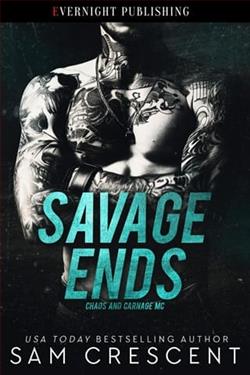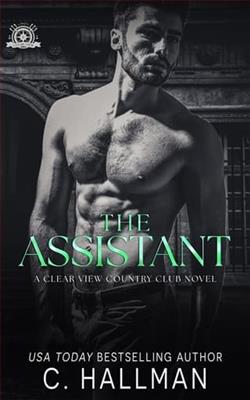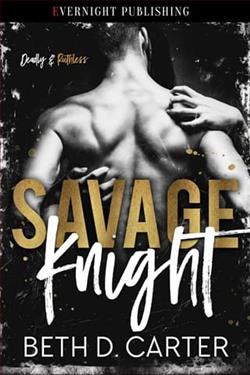Page 38 of Shake the Habit
The top layer consisted mostly of bills, I found. I flipped through invoice after invoice for things that seemed plant-related, like fertilizer and grafting tape. Under that, I found her tax bills and her power bills, going back years.
“What are you doing?” Caleb called as he and Sir approached.
“Just looking at this.” I put down one of the invoices. “Do you mind?”
He shook his head. “I kept meaning to do it myself, but I’ve been putting it off.”
“Do you think it would make you sad?”
“No,” he told me. “It’s complicated.” He tested the porch railing, shaking it hard with his hand, before he rested against it. Sir leaned against his legs. The dog was definitely more than a hundred pounds now and Caleb wasn’t hefty, but he wasn’t a lightweight, either. He was what my aunt Amber would havecalled “very nicely formed,” just like she said about her husband Jed.
“She kept a lot of old bills,” I noted. “She must have been worried about money.”
“No.”
“No?” I asked.
“I’ve told you how we lived,” he said. “No heat, no TV, no vacations, no good food.”
“I didn’t know about the last one.” I frowned. There were resources she could have used to help her hungry child.
“My mother wanted to live off the land as much as she could. She was mostly vegetarian, but we had chickens to keep down pests in the orchard. I used to suck on their eggs because I was so hungry.”
“Caleb!”
“I eat well now,” he assured me, and I thought again about the old bills in this desk. There hadn’t been any for groceries or dinner deliveries. “Food was at a minimum, so there were no treats. No cake, no candy, no ice cream.”
“Not even on your birthday?”
“We didn’t celebrate very much,” he said. “I always assumed that we were poor. There wasn’t money for the uniform I needed for high school, there was nothing for a car for me, there was nothing for college. I worked and paid for those things myself. But when I came back here, when her health was bad, I found out the truth.” He pointed at one of the desk drawers. “I wastrying to figure out her financial situation, and I came across her bank statements.”
I pulled hard and that drawer slid open, revealing another messy pile instead of files or anything that looked like organization. I took the papers from the top and my eyes widened.
“She had this much? My Lord!”
“That’s just one account,” he said. “This land has value, but there’s even more. She kept her will in that same drawer and more records, too. She had several bond portfolios. She had stocks and land holdings passed down from her great-grandfather and today they’re worth a lot. A lot,” he repeated.
I understood that his idea of “a lot” was probably a much larger number than what I had in mind. “And now it’s yours?” I asked, and he nodded slightly. “Aunt Paula said that your mama was proud of being a Woodson. I assumed that the family had…diminished, and that was why this farmhouse didn’t have heat and the water doesn’t seem to come out very strongly.” It was hard to make the toilets flush, for example.
“No,” Caleb answered, “there was no diminishment. She chose to live this way, in cold squalor. She chose to have me live this way, too.”
“Why? No, I’m not asking about your mother’s choices,” I amended, before he answered. “I understand that she was angry and didn’t like people. There’s a really good word for that, by the way.”
“Misanthrope. Yeah, that was Lara-Lee.”
“But you’re not. Why are you still here?”
He turned his head to look toward the stunted orchard. “I want to bring it back.”
“You told me that she had a dream for this farm and that you wanted to make it come true. But I don’t understand why. It seems like it would be easier to sell the land and walk away from the place where you weren’t happy.”
The front door slammed again—it must have drifted back open. Marc could fix the latch, but Caleb hadn’t seemed to notice the problem. He continued to look at me steadily, as if he was thinking about his answer to my question. “I wanted to make her proud,” he told me after a while. “Finally. I had never done enough, but maybe I could turn the farm into what she had dreamed of. She had never succeeded but I could. I could try.”
“Oh.” I put down the papers in my hands and walked over to the railing. “I don’t want to startle you like I did at the airport, but I’m going to hug you again.”
“You are?” He didn’t seem opposed, though, because he widened his knees so that I could stand between them, and he opened his arms slightly. Because he was leaning on the railing, his head was close to my level so he put his chin on my shoulder.
“I guess this is my day to give advice,” I said. “I gave a big speech earlier about accepting help but you don’t need that. What you need is to let go.”















